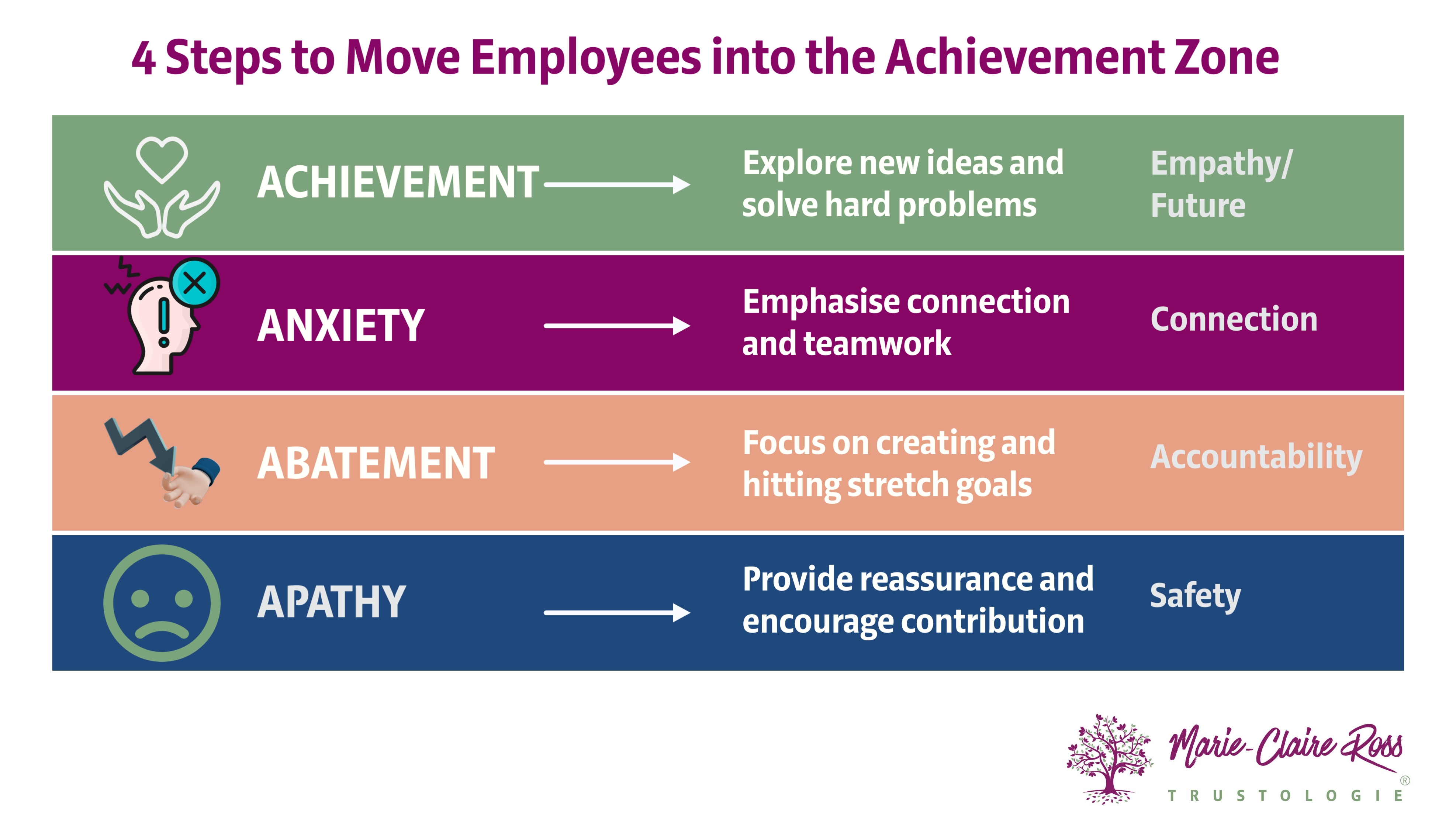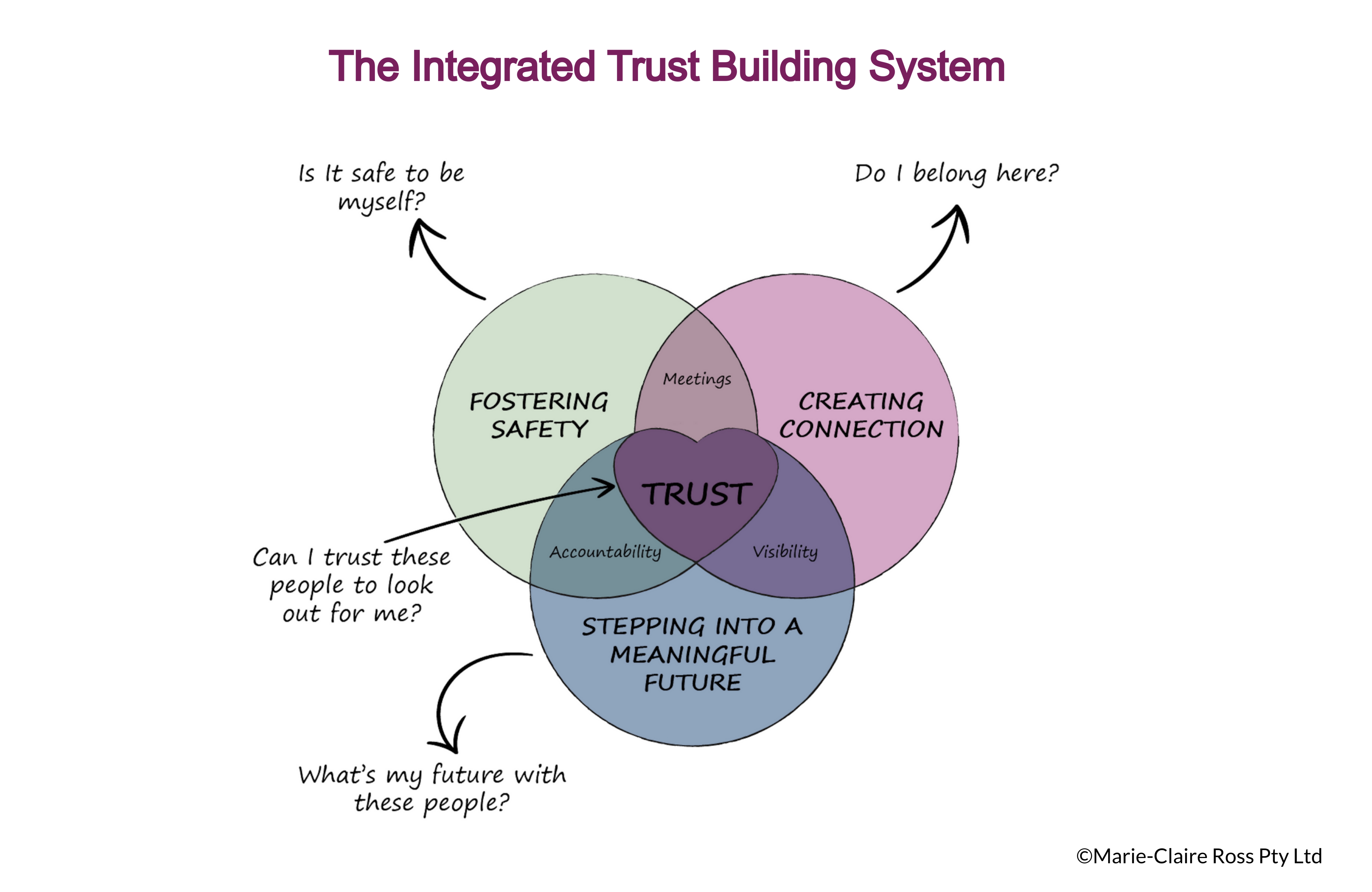11 min read
4 Practical Strategies for Better Emotional Management in the Workplace
I have a friend who often finds herself at the mercy of her emotions. Recently, she called me to rehash a confrontation she’d had with a group of...
Develop leaders, strengthen executive teams and gain deep insights with assessments designed to accelerate trust and performance.

Transform how your leaders think and perform with keynotes that spark connection, trust and high-performance cultures.

Explore practical tools, thought-leadership and resources to help you build trusted, high-performing teams.

Trustologie® is a leadership development consultancy founded by Marie-Claire Ross, specialising in helping executives and managers build high-trust, high-performing teams.

3 min read
Marie-Claire Ross : Updated on September 1, 2021

One of the traits of achievement zone leaders is that they love receiving feedback. They use it to improve how they work and those around them.
But the problem is few people are taught how to provide really good, helpful feedback. Mostly because they don't want to hurt people's feelings. So it's either irrelevant "Oh, your hair looked a bit frizzy, but your presentation was great." Or vague '"You did a pretty good job." To the downright mean "You were sloppy and you should be ashamed of handing in such late work. You are such an idiot." Ouch!
And then of course is the other big issue that so many of us don't like receiving feedback. Probably because we had bad parents, bosses or teachers who wielded nasty, spiteful criticism as an improvement tool.
The truth is we need regular feedback to inform us of how we are tracking, in order to motivate us to stay the course. Many of us need to feel that we are making progress and that our work is contributing to something important. Providing an important sense of momentum. Reinforcing we are doing the right things or needing to change our approach. When we don’t receive feedback, or receive it after an activity is performed, it negatively impacts our self-confidence and sense of achievement.
So no matter how you feel about feedback - it is so beneficial to your personal development.
I believe I can always tell how much a person will improve by how they embrace feedback. If they shrug it off or make excuses, it provides me with a little warning light that this isn't a person who will work well with me. But if they listen, ask questions for further clarification and then show me what they have done to improve, I know I'm with a winner.
Requesting feedback is a powerful tool to improve your leadership. The trick is that we have to learn how to ask for specific feedback in a way that is helpful to us and the sender. Usually we tend to ask for more general feedback, so we get vague or well-intended responses that keep us in the dark.
The good news is that you can be in control of receiving it. If you feel lost at sea because your boss doesn't give you any feedback (or nothing helpful), you can ask for it. The trick is to make sure that you are specific about what you’re trying to improve, otherwise you will get limited value.
Working loosely off Dr Tasha Eurich's feedback frame from the book, Insight, there are seven important steps:
6. Accept feedback graciously. Make sure you listen carefully to their feedback and don't act defensively. Otherwise, they won't want to help you out next month. If you can, ask further questions for clarity. And always end with “Thank you for that feedback” or "Thank you. That's really helpful. I now know what I need to work on." That will encourage them to get even more specific next time or be more observant over the next month. And of course, work on improving., so they don't feel like you aren't taking it seriously.
7. Keep going. You often see young or new employees who are keen to get feedback and then once they reach a career milestone they shut it down. Don't act like an oldie. Keep going and improving. Personal development is never done. And if you think it is, then you might as well get ready for retirement!

11 min read
I have a friend who often finds herself at the mercy of her emotions. Recently, she called me to rehash a confrontation she’d had with a group of...

9 min read
True leadership presence isn’t a performance or a set of charisma hacks; it is the felt experience of who you are being in the room. By cultivating...

13 min read
As teams return from their summer (or winter) break, you may notice subtle shifts in your team’s energy. Even if the end of year was positive, a new...

Trust is often easy to build within teams.

Recently, one of the biggest complaints that I have been hearing about leaders is how a lack of self-awareness is impacting their performance....